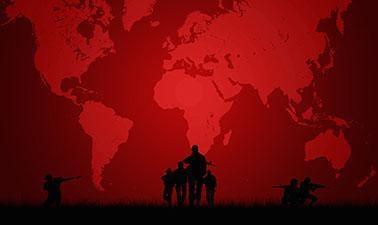MOOC List is learner-supported. When you buy through links on our site, we may earn an affiliate commission.

MOOC List is learner-supported. When you buy through links on our site, we may earn an affiliate commission.
Unfortunately, recent events have shown that this phenomenon is becoming increasingly complex, especially with respect to some legal issues, such as:
- The definition of combatants when terrorists are involved in the hostilities.
- The detention by rebels of State armed forces.
- The involvement and status of UN peacekeepers in armed conflicts.
We will address these issues in light of recent practice, including the fight against ISIS and Al-Qaeda in different regions of the world, as well as other recent and older conflicts, such as those in Armenia, Afghanistan, Libya, Mali, and the Israeli-Palestinian one.
The course will provide essential theoretical and practical knowledge for students, researchers and academics who wish to specialize in International Humanitarian Law as well as professionals, including members of NGOs, involved in armed conflict situations, or even members of armed forces.
This course is part of the International Law MicroMasters.
What you'll learn
- Decode and analyze in depth complex issues related to armed conflicts
- Understand the philosophy and logic underlying International Humanitarian Law norms
- Be able to propose constructive solutions in light of the evolution of the nature of armed conflicts and the legal norms applicable to them
Syllabus
Week 1: Introduction
Introductory remarks about International Humanitarian Law, including the relationships between law and armed conflicts, a brief history of that Law and its relations with other branches of International Law.
Week 2: Sources and subjects
Analysis of the sources (treaty, custom and jus cogens) as well as subjects (States, international organizations and armed groups) of International Humanitarian Law.
Week 3: Scope of application
Qualification of situations of violence as armed conflicts and analysis of the temporal and geographical scope of application of International Humanitarian Law.
Week 4: Conduct of hostilities
Analysis of the norms regulating the conduct of hostilities, including the prohibitions to target persons and objects, the prohibitions to use weapons and methods of warfare and the obligation of precaution.
Week 5: Protection of persons
Analysis of the norms regulating the protection of persons in time of war, notably the wounded and sick people, the captured combatants and the civilians, including in time of occupation.
Week 6: State responsibility
Introductory remarks on the implementation means of International Humanitarian Law and analysis of State responsibility mechanisms in case of violations of that Law.
Week 7: Individual responsibility
Analysis of the national/international/hybrid mechanisms for the punishing of individuals responsible of war crimes.
Prerequisites
- Knowledge of the fundamentals of International Law (subjects and sources of International Law/principles governing international responsibility). Such knowledge may be acquired by the successful completion of International law.
- In addition, students should be familiar with the requirements of graduate-level courses and should preferably have already followed some law courses in order to be familiar with legal concepts and legal language.
MOOC List is learner-supported. When you buy through links on our site, we may earn an affiliate commission.
MOOC List is learner-supported. When you buy through links on our site, we may earn an affiliate commission.
